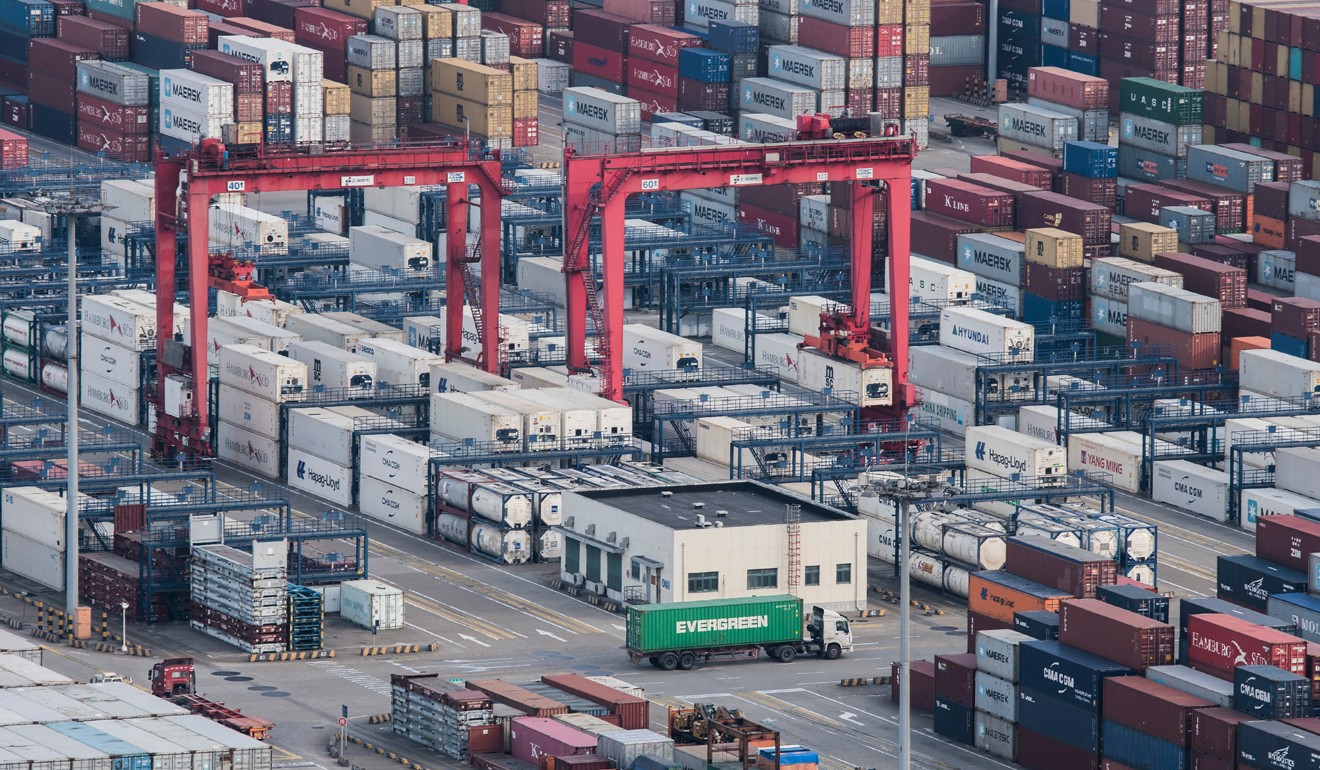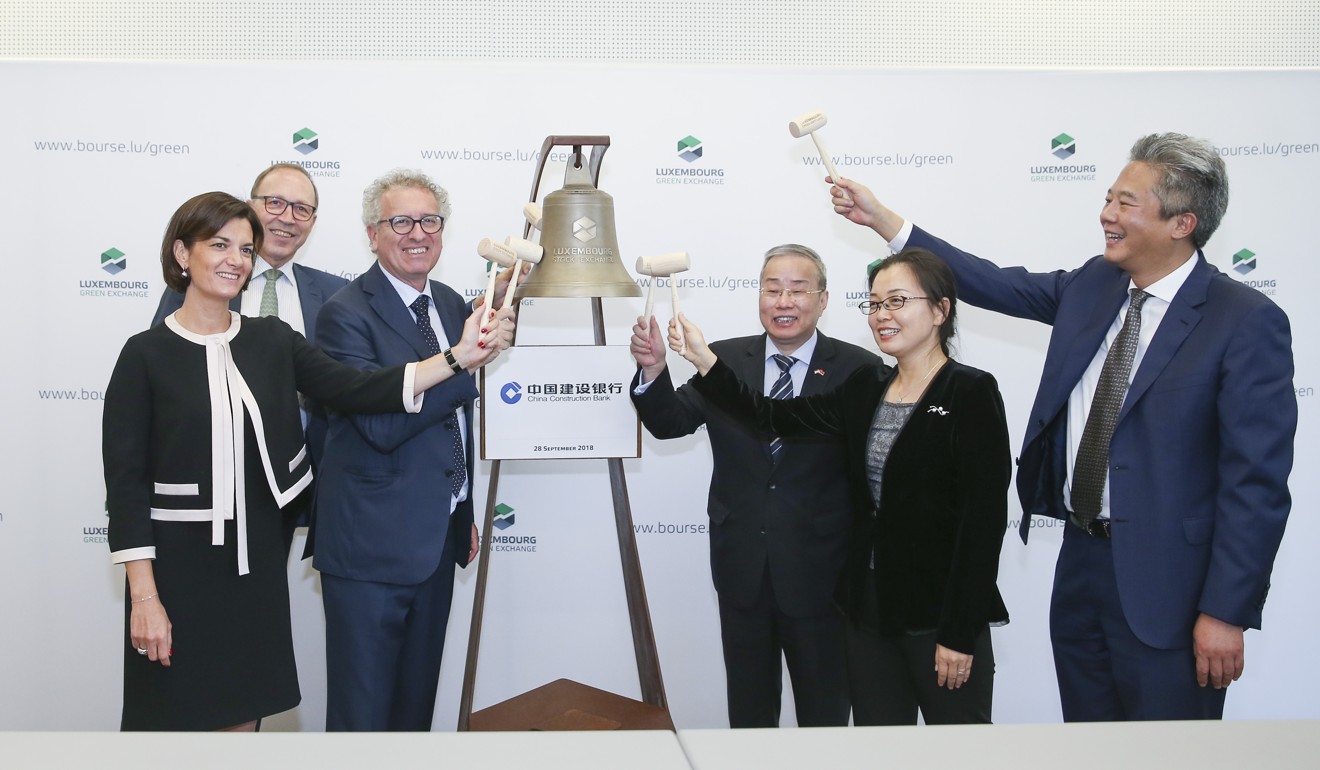
China eyes major expansion of its ‘too-big-to-fail’ rules
Sources say Chinese regulators led by the country’s central bank are set to initially shortlist at least 50 of the country’s largest lenders, insurers and brokerages as possible ‘systemically important financial institutions’
China plans to increase the number of companies it deems systemically important financial institutions (SIFI), according to sources, a sign that policymakers are stepping up crisis-prevention efforts as the nation’s debt burden swells to unprecedented levels.
They said regulators led by China’s central bank will initially shortlist at least 50 of the country’s largest lenders, insurers and brokerages as possible SIFIs.
Firms that receive the designation will be subject to extra capital requirements, and may face additional rules on leverage, risk exposure and information disclosure. Regulators currently consider about 20 banks to be systemically important, one of the sources said.
Increasing the number of SIFIs, a label commonly known as “too big to fail,” may help President Xi Jinping’s government strengthen oversight of China’s US$40 trillion financial system.
The country’s rapid expansion of lending over the past decade has provided a big jolt to global economic growth, but it has also alarmed everyone from bond-rating companies to hedge fund managers and the International Monetary Fund.
China’s government, which is selling US$3 billion of debt to international investors this week, faces a tricky balancing act as it tries to rein in financial excesses while at the same time ensuring that the economy has enough credit to withstand threats including a US trade war.
Tougher capital requirements could make it harder for China’s big financial firms to lend, potentially increasing defaults and adding pressure on the nation’s falling currency and stock market.
“China’s regulators are indeed trying hard to avoid financial risk as credit levels remain very high,” said Liao Chenkai, a Shanghai-based analyst at Capital Securities Corp.
“Including more companies as systemically important will push them to strengthen their capital position.”
The People’s Bank of China did not immediately reply to a faxed request for comment.
China’s regulators are indeed trying hard to avoid financial risk as credit levels remain very high. Including more companies as systemically important will push them to strengthen their capital position
Chinese regulators recently hinted at their plans for SIFIs, but provided little in the way of detail. Top officials approved measures that included a new mechanism to identify and regulate SIFIs at a meeting chaired by Xi last month, but a government statement summarising the meeting did not spell out the number of SIFIs or provide other specifics on the new measures. The timeline for any changes is unclear.
The government is unlikely to introduce stricter capital requirements any time soon because it’s more focused on supporting economic growth, said Ding Shuang, chief economist for Greater China and North Asia at Standard Chartered in Hong Kong. “Now is maybe the worst time to tighten regulation.”
Policymakers have said little publicly about the country’s SIFI rules or the institutions that they cover. One of the few mentions came in 2010 when Zhou Xiaochuan, then PBOC governor, identified China’s five largest lenders as SIFIs. Those are Industrial and Commercial Bank of China, China Construction Bank, Agricultural Bank of China, Bank of China and Bank of Communications.

Identifying and regulating SIFIs became a focus for global authorities in the wake of the 2008 financial crisis, when governments were forced to bail out some of the world’s biggest financial firms.
The Financial Stability Board, an international body made up of national regulators and central bankers, compiles a global list of systemically important institutions.
China’s top four banks are on the FSB’s list, while Ping An Insurance (Group) is one of the nine firms deemed by the FSB to be a global systemically important insurer. Individual countries, including the US, have also developed their own designations.
In China, where total debt climbed to an estimated 266 per cent of gross domestic product at the end of 2017, authorities have focused most of their recent risk-control efforts on the nation’s sprawling shadow banking system.
The SIFI plan suggests policymakers are increasingly wary of contagion risks and the interconnections between large firms and the rest of the financial industry.
Banks accounted for more than 80 per cent of China’s financial assets at the end of 2016, with large portions also controlled by insurers and securities firms, according to the PBOC’s latest financial stability report, published in July 2017.
The central bank said at the time that the government was assessing domestic systemically important securities firms and studying a plan to require capital surcharges.
In 2016 China’s insurance regulator, then known as China Insurance Regulatory Commission, drafted rules on systematically important insurers and requested data from 16 companies, but it did not published final rules or announce any designations.

While the SIFI rules are meant to prevent bankruptcies of large institutions, they also help to limit the broader impact of major failures. It’s unclear how China’s designation would affect government decisions on bailouts.
The country’s last major bank failure occurred in 1998, when the PBOC shut Hainan Development Bank for reneging on debt payments.
Most of China’s largest financial companies today are majority-owned by the government, which spent billions in the wake of a 1990s lending binge to rescue lenders by carving out bad debt and injecting fresh capital into troubled firms.

